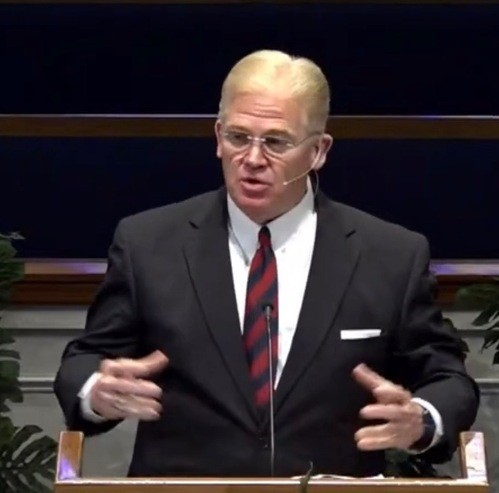The Songs of Christmas: A Symphony of Hope and Salvation
Luke 1:1-2:20
As the festive season approaches, our hearts turn to the familiar melodies of Christmas carols. But have you ever considered the very first songs of Christmas? Long before "Silent Night" or "Joy to the World," there were powerful anthems of praise sung at the dawn of our Savior's birth. These songs, recorded in the Gospel of Luke, offer us a profound glimpse into the true meaning of Christmas and the hope it brings to all humanity.
The Song of Zacharias: God Remembers
Our journey begins with Zacharias, a faithful priest serving in the temple. Despite years of prayer, he and his wife Elizabeth remained childless in their old age. But God had not forgotten them. In a moment that would change history, the angel Gabriel appeared to Zacharias, announcing that Elizabeth would bear a son – John, who would prepare the way for the Messiah. Initially skeptical, Zacharias was struck mute for his disbelief. Yet when John was born, Zacharias' tongue was loosed, and he burst forth in a song of praise. His words echo the faithfulness of God: "To perform the mercy promised to our fathers and to remember his holy covenant" (Luke 1:72).
This song reminds us that God never forgets His promises. In a world where human memory fails, and commitments are often broken, we serve a God who remembers. He remembered His covenant with Abraham and David, and more importantly, He remembers you and me. The coming of John the Baptist signaled that the long-awaited Messiah was near – the one who would bring light into our darkness and forgiveness for our sins.
The Song of Mary: God My Savior
Next, we turn to Mary, a young virgin visited by the same angel Gabriel. Unlike Zacharias, Mary responded to the miraculous news with humble faith: "Behold, the handmaid of the Lord; be it unto me according to thy word" (Luke 1:38). Her song, known as the Magnificat, is a beautiful tapestry of praise and prophecy. Mary's words reveal deep theological truths. She rejoices in "God my Savior," acknowledging her own need for redemption. This stands in stark contrast to some religious teachings that elevate Mary to a sinless status. Instead, we see a humble servant, overwhelmed by God's grace in choosing her for this sacred task.
Her song also speaks of a great reversal – how God lifts up the lowly and humbles the proud. It's a reminder that in God's kingdom, our worldly status means nothing. What matters is our heart's posture before Him. Through Christ, the humble are exalted, not with arrogance, but with the dignifying grace of being called children of God.
The Song of Elizabeth: Joy in the Lord
When Mary visited her cousin Elizabeth, who was pregnant with John the Baptist, a remarkable thing occurred. The baby in Elizabeth's womb "leaped for joy" at the presence of the unborn Messiah. Filled with the Holy Spirit, Elizabeth burst into a song of blessing.
This joyful encounter reminds us of the sanctity of life, even in its earliest stages. John, though not yet born, could recognize and respond to the presence of Christ. Elizabeth's words, "Blessed is she who believed," highlight the importance of faith in God's promises, no matter how impossible they may seem.
The Song of the Angels: Glory to God in the Highest
Finally, we come to that holy night in Bethlehem. As shepherds watched their flocks, the sky erupted with the most glorious chorus ever heard on earth. A multitude of angels proclaimed, "Glory to God in the highest, and on earth peace, good will toward men" (Luke 2:14).
This heavenly song encapsulates the heart of the Christmas message. First and foremost, it's about giving glory to God. The incarnation – God becoming man – is the greatest miracle in history, worthy of all praise. Secondly, it speaks of peace. Not a superficial absence of conflict, but a deep, abiding peace that comes from being reconciled to God through Christ. The phrase "good will toward men" is better translated as "peace to those on whom his favor rests." This favor, or grace, is extended to all who put their faith in Jesus. It's a reminder that true peace is not found in circumstances, but in a restored relationship with our Creator.
Reflections for Today
As we ponder these ancient songs of Christmas, what can we learn for our lives today?
1. God is faithful to His promises. Just as He fulfilled His word in sending the Messiah, we can trust Him to keep His promises to us.
2. Humility opens the door to God's blessings. Mary's humble acceptance of God's will led to her being part of the greatest story ever told.
3. Joy is found in recognizing Christ's presence. Like John leaping in the womb, our hearts should leap with joy at the nearness of our Savior.
4. Every life is precious in God's sight. From the unborn to the elderly, each person bears the image of God and has inherent worth.
5. True peace comes through a relationship with Jesus. In a world of turmoil, we can experience the "peace that passes understanding" when we trust in Christ.
6. Our proper response to God's grace is praise. Like the angels, our lives should be a constant song of glory to God for His indescribable gift.
This Christmas, as you hear the familiar carols, remember these first songs. Let them stir your heart to worship. For the same Jesus who was born in Bethlehem is alive today, offering salvation, peace, and joy to all who will receive Him.
May your life become a song of praise, joining the eternal chorus that began that holy night and continues for all eternity. For unto us a child is born, unto us a Son is given. His name shall be called Wonderful, Counselor, The mighty God, The everlasting Father, The Prince of Peace.
As the festive season approaches, our hearts turn to the familiar melodies of Christmas carols. But have you ever considered the very first songs of Christmas? Long before "Silent Night" or "Joy to the World," there were powerful anthems of praise sung at the dawn of our Savior's birth. These songs, recorded in the Gospel of Luke, offer us a profound glimpse into the true meaning of Christmas and the hope it brings to all humanity.
The Song of Zacharias: God Remembers
Our journey begins with Zacharias, a faithful priest serving in the temple. Despite years of prayer, he and his wife Elizabeth remained childless in their old age. But God had not forgotten them. In a moment that would change history, the angel Gabriel appeared to Zacharias, announcing that Elizabeth would bear a son – John, who would prepare the way for the Messiah. Initially skeptical, Zacharias was struck mute for his disbelief. Yet when John was born, Zacharias' tongue was loosed, and he burst forth in a song of praise. His words echo the faithfulness of God: "To perform the mercy promised to our fathers and to remember his holy covenant" (Luke 1:72).
This song reminds us that God never forgets His promises. In a world where human memory fails, and commitments are often broken, we serve a God who remembers. He remembered His covenant with Abraham and David, and more importantly, He remembers you and me. The coming of John the Baptist signaled that the long-awaited Messiah was near – the one who would bring light into our darkness and forgiveness for our sins.
The Song of Mary: God My Savior
Next, we turn to Mary, a young virgin visited by the same angel Gabriel. Unlike Zacharias, Mary responded to the miraculous news with humble faith: "Behold, the handmaid of the Lord; be it unto me according to thy word" (Luke 1:38). Her song, known as the Magnificat, is a beautiful tapestry of praise and prophecy. Mary's words reveal deep theological truths. She rejoices in "God my Savior," acknowledging her own need for redemption. This stands in stark contrast to some religious teachings that elevate Mary to a sinless status. Instead, we see a humble servant, overwhelmed by God's grace in choosing her for this sacred task.
Her song also speaks of a great reversal – how God lifts up the lowly and humbles the proud. It's a reminder that in God's kingdom, our worldly status means nothing. What matters is our heart's posture before Him. Through Christ, the humble are exalted, not with arrogance, but with the dignifying grace of being called children of God.
The Song of Elizabeth: Joy in the Lord
When Mary visited her cousin Elizabeth, who was pregnant with John the Baptist, a remarkable thing occurred. The baby in Elizabeth's womb "leaped for joy" at the presence of the unborn Messiah. Filled with the Holy Spirit, Elizabeth burst into a song of blessing.
This joyful encounter reminds us of the sanctity of life, even in its earliest stages. John, though not yet born, could recognize and respond to the presence of Christ. Elizabeth's words, "Blessed is she who believed," highlight the importance of faith in God's promises, no matter how impossible they may seem.
The Song of the Angels: Glory to God in the Highest
Finally, we come to that holy night in Bethlehem. As shepherds watched their flocks, the sky erupted with the most glorious chorus ever heard on earth. A multitude of angels proclaimed, "Glory to God in the highest, and on earth peace, good will toward men" (Luke 2:14).
This heavenly song encapsulates the heart of the Christmas message. First and foremost, it's about giving glory to God. The incarnation – God becoming man – is the greatest miracle in history, worthy of all praise. Secondly, it speaks of peace. Not a superficial absence of conflict, but a deep, abiding peace that comes from being reconciled to God through Christ. The phrase "good will toward men" is better translated as "peace to those on whom his favor rests." This favor, or grace, is extended to all who put their faith in Jesus. It's a reminder that true peace is not found in circumstances, but in a restored relationship with our Creator.
Reflections for Today
As we ponder these ancient songs of Christmas, what can we learn for our lives today?
1. God is faithful to His promises. Just as He fulfilled His word in sending the Messiah, we can trust Him to keep His promises to us.
2. Humility opens the door to God's blessings. Mary's humble acceptance of God's will led to her being part of the greatest story ever told.
3. Joy is found in recognizing Christ's presence. Like John leaping in the womb, our hearts should leap with joy at the nearness of our Savior.
4. Every life is precious in God's sight. From the unborn to the elderly, each person bears the image of God and has inherent worth.
5. True peace comes through a relationship with Jesus. In a world of turmoil, we can experience the "peace that passes understanding" when we trust in Christ.
6. Our proper response to God's grace is praise. Like the angels, our lives should be a constant song of glory to God for His indescribable gift.
This Christmas, as you hear the familiar carols, remember these first songs. Let them stir your heart to worship. For the same Jesus who was born in Bethlehem is alive today, offering salvation, peace, and joy to all who will receive Him.
May your life become a song of praise, joining the eternal chorus that began that holy night and continues for all eternity. For unto us a child is born, unto us a Son is given. His name shall be called Wonderful, Counselor, The mighty God, The everlasting Father, The Prince of Peace.


1 Comment
Amen!
nJust as the promise of His first coming was fulfilled, so will the promise of His second coming be fulfilled!